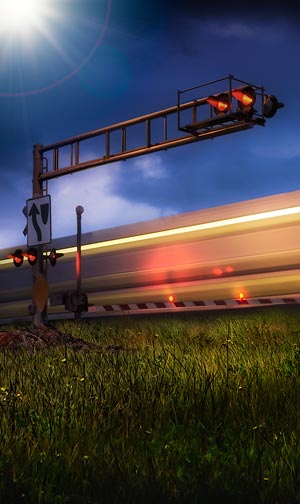CSX Oil Train Derails Resulting in Explosions and Evacuations
(Charleston, West Virginia – February 16, 2015)
A derailment of at least 13 cars of a 109-car CSX train carrying crude oil from the North Dakota Bakken oil fields through West Virginia produced numerous explosions, fires that burned personal residences, endangered public water supplies and caused the evacuation of all residents in two small communities at about 1:20 P.M., EST Monday.
The tank cars, at least one of which fell into the nearby Kanawha River, were exploding and burning in slow chain reaction fashion and many were believed to be of the DOT-100 variety that a USDOT proposal had recommended be banned from transport of the unstabilized (prone to volatility) oil until they could be retrofitted with stronger hulls, head shields and tight-lock couplers that were thought to be safety improvements over a rail transport vehicle one critic called “a Pinto on rails.”
Residents of the villages of Adena and Boomer, WV were ordered to evacuate the area as at least one house caught fire from the burning, oily onslaught. Flames from the ruptured tank cars shot an estimated 100 yards into the air as the explosions occurred.
West Virginia American Water Co. was forced to shut down its water treatment intake plant located three miles downstream from the site of the accident at about 2:0 P.M., forcing water restrictions upon the 2,000 customers served by the facility. Shortly thereafter, the town of Cedar Grove, WV was forced to close its Kanawha River intake as well.
The West Virginia crash occurred only two days after a Canadian National train carrying fracked Canadian oil derailed 29 tank cars out of a train of 100 in northern Ontario resulting in a similar conflagration.
The National Transportation Safety Board announced they would monitor the situation, but had no plans to send an investigatory team to the site. The improved safety of railroad tank cars is one of the NTSB’s “Top Ten” wish list for 2015.


